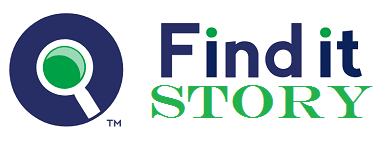Legal professionals have to process extensive audio data from interviews as well as depositions and hearings and dictated case notes which requires precise text conversion. The process of legal transcription stands as a crucial necessity. Legal documentation process streamlining efforts by law firms and corporate legal departments drive them toward two primary choices between specialized transcription services and speech-to-text (STT) software solutions.
The decision between outsourcing to specialized services or using STT software affects both operational efficiency and both costs and accuracy levels in legal operations. This article analyzes the differences between outsourcing legal transcription services and utilizing speech-to-text (STT) software to assist your firm in selecting the most suitable option.
The Case for Professional Transcription Services
The conversion process of speech into text represents only the fundamental aspect of legal transcription. Legal transcription demands specialized knowledge about legal terminology as well as legal formatting standards and absolute confidentiality requirements. Legal departments along with law firms usually select professional transcription specialists for this specific task because of their expertise.
The human accuracy guarantee provided by outsourcing proves essential when working with complicated legal terminology and when multiple speakers have heavy accents or poor audio quality. Professional transcriptionists acquire training to detect subtle details and inconsistencies in the material while creating transcripts that are both grammatically correct and legally compliant. The services include multiple quality control steps which detect errors which automated systems would miss.
Legal transcription outsourcing eliminates the need for repeated editing of flawed transcripts because it saves time for your organization. Legal professionals gain more time to perform core responsibilities because this system frees up internal resources.
Understanding Speech-to-Text Software
The development of speech-to-text software through artificial intelligence and machine learning technology has brought about significant advancements throughout the last few years. The transcription software tools Otter.ai along with Dragon NaturallySpeaking and Google Docs built-in features provide immediate transcription services to users. The platforms are widely adopted by legal professionals who want rapid transcription services for their internal documentation work and brainstorming sessions together with client meetings.
These tools exist with multiple operational constraints. STT software demonstrates weak performance when processing background noises while simultaneously handling overlapping speech and dealing with regional speech patterns and recording quality issues. The resulting text demands thorough manual editing yet this process destroys the time benefits and creates mistakes in legal documentation.
The decision between legal transcription outsourcing and automated tools requires evaluation of quality standards alongside consistency requirements and legal compliance factors.
Cost vs. Accuracy: What Matters More?
The majority of firms base their outsourcing versus software decision on cost considerations. STT tools provide cost-effective basic versions as well as subscription-based pricing structures for upfront expenses. The pricing structure of STT tools works well for both small law practices and solo attorneys who have restricted financial resources.
Inaccurate transcription expenses surpass the initial financial advantages because they result in court delays and legal misunderstandings and missed critical legal points. The initial cost of outsourcing may seem higher than STT software but the assurance of legal reliability and high-quality output and peace of mind prove to be more cost-effective in the long run.
Legal transcription outsourcing provides firms with established pricing structures alongside secure data management and flexible service options that scale according to work volume. The quality of STT software transcriptions remains uncertain for large transcription projects since STT software cannot deliver consistent results when handling extensive volumes.
Confidentiality and Legal Compliance
Security represents a crucial point of consideration. Legal transcripts contain sensitive confidential material which needs to be processed according to HIPAA standards as well as GDPR and ABA regulatory requirements. The security standards of STT software are inconsistent because data storage takes place in unprotected cloud environments or without encryption protocols.
Reputable legal transcription firms implement standard confidentiality agreements together with compliance protocols when you choose to outsource your work. These companies implement encrypted portals combined with non-disclosure agreements (NDAs) and secure file transfer protocols to safeguard client information. These organizations maintain compliance with jurisdictional data protection regulations which adds extra legal safeguards to their operations.Scaling with Virtual Workforce Support
Scaling with Virtual Workforce Support
Legal firms that implement digital transformation and remote work models find virtual employee recruitment to be an increasingly appealing solution. The integration of virtual legal transcriptionists or transcription agencies into your operations does not demand office facilities or training expenses or employee benefits. The system proves most valuable to firms that experience varying caseloads as well as international clients and need transcription services in different languages.
The hiring of virtual employees together with external transcription partners provides flexibility as well as access to worldwide legal transcription experts. These professionals possess extensive legal experience along with industry-specific knowledge which produces transcripts that become dependable legal documents suitable for submission and review and archiving.
The exclusive use of speech-to-text software in critical situations would endanger your law firm’s professional standing. Legal cases suffer when their integrity is damaged through incorrect interpretations of phrases or missing legal terms or improper formatting.
Hybrid Models: Combining the Best of Both Worlds
Some firms select hybrid models which combine STT software for generating quick internal documentation while sending formal or sensitive documents to external transcription services. The combination of speed and precision makes this method suitable for situations where there are budget limitations but high accuracy requirements need to be met.
Attorneys can start by speaking notes through voice assistants or mobile apps followed by using STT for draft transcription before sending the document to virtual transcriptionists for final editing. The documented workflow delivers fast transcription while preserving the required legal precision.
Making the Right Choice for Your Firm
The selection between speech-to-text software and outsourcing legal transcription depends on your law firm’s particular requirements together with your budget and service expectations.
Outsourcing legal transcription remains the most dependable choice because it delivers accuracy along with security and legal compliance.
The combination of speed and cost-effectiveness for unimportant tasks makes speech-to-text software a viable option.
Your documentation needs can be supported through the combination of virtual employee hiring or transcription partner recruitment for flexible scalability.
The evaluation of your legal workflow against these options will enable you to select the most appropriate choice. Transcription speed should not be the only goal since legal documents must be both sound in law and error-free to effectively support your case strategy and client representation.
Final Thoughts
Any law practice requires legal transcription as an essential operational component. Speech-to-text software provides fast and convenient results yet fails to meet the standards needed for official legal documentation. Legal professionals who outsource their transcription work to experienced experts obtain improved quality together with enhanced security and flexible solutions that match their specific legal requirements.
Legal professionals can optimize their workflow and deliver better client service by making strategic decisions about transcription outsourcing or automation which helps them maintain compliance while focusing on delivering justice.

